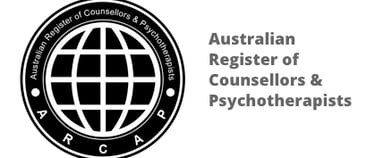Cultivating Mindfulness and Resilience for Busy Lives
Easy and effective mindfulness practices to calm your mind in a hectic world. What is Grounding? 5 Techniques to Calm Your Nervous System Grounding tools to manage anxiety, overwhelm, and trauma responses. How to Set Healthy Boundaries (and Stick to Them) Learn how to set compassionate boundaries for healthier relationships and self-care. The Link Between Nature and Mental Health Explore how spending time in nature can support emotional wellbeing and reduce stress. Journaling Prompts for Emotional Clarity and Self-Compassion Use journaling to explore feelings, reduce stress, and build emotional awareness.
COUNSELLING SELF CARE


Understanding Self-Care in a Hectic World
Self-care is a vital component of maintaining mental health, especially in the fast-paced environments that characterize modern life. It can be defined as the practice of taking an active role in protecting and enhancing one’s own well-being and happiness. This includes a range of activities and lifestyle choices that prioritize emotional, physical, and mental health. In a world where obligations and responsibilities can easily overwhelm, understanding and implementing effective self-care strategies becomes essential.
In busy lives, the necessity for self-care cannot be overstated. Engaging in self-care allows individuals to recharge and refocus, ultimately fostering emotional resilience. This resilience is crucial for coping with the daily stresses that arise from work, family responsibilities, and social commitments. When people prioritize their well-being, they cultivate not only a healthier relationship with themselves but also enhance their capacity to engage with the world empathetically and effectively.
Various self-care strategies can be tailored to fit the lifestyles of busy individuals. For instance, establishing a routine that includes dedicated time for relaxation, such as meditation, deep breathing exercises, or mindfulness practices, can greatly alleviate stress. Additionally, maintaining physical health through regular exercise and a balanced diet contributes significantly to overall well-being. Other options include finding time for hobbies or creative pursuits, which can serve as important outlets for self-expression and stress relief.
Moreover, setting boundaries is essential in a world where the demand for productivity often feels relentless. By learning to say no and delegating tasks when possible, individuals can create space in their schedules for self-care. Ultimately, integrating self-care into daily life not only improves mental health but also enhances the ability to navigate the complexities of a hectic world.
Simple Mindfulness Practices for Busy People
In the midst of hectic schedules and constant demands, cultivating mindfulness can seem challenging. However, integrating simple mindfulness practices into daily routines can promote mental clarity and emotional stability, even for those with the busiest lifestyles. Here are a few practical techniques designed specifically for individuals pressed for time.
One effective approach is mindful breathing. Allocating just a few minutes a day to focus solely on your breath can significantly enhance your sense of presence. Find a quiet space, sit comfortably, and take a deep breath in through your nose, holding it for a moment before exhaling slowly through your mouth. This practice can be performed anywhere—in your car, at your desk, or even during a short break. By concentrating on your breath, you create an anchor to the present moment, allowing distractions to fade temporarily.
Mindful walking is another accessible practice that combines movement with awareness. Rather than rushing from one place to another, take a few minutes each day to walk slowly and deliberately. Focus on the sensations of your feet touching the ground and the rhythm of your breath. This practice not only promotes mindfulness but also helps increase physical activity, contributing to overall well-being.
Journaling, even if done for just five minutes, can be a powerful mindfulness tool. Set aside a brief moment to jot down your thoughts or feelings. This practice encourages reflection and can assist in processing emotions, leading to greater self-awareness. You can also use prompts to guide your writing, such as "What am I grateful for today?" or "What challenges did I face, and how did I respond?"
These simple mindfulness practices can easily be adapted to suit busy lives. By dedicating small and consistent segments of time to mindfulness, individuals can foster greater resilience and tranquility amidst the demands of their busy schedules.
Grounding Techniques for Managing Nervousness
Grounding techniques serve as practical strategies that help individuals manage feelings of nervousness and anxiety by bringing their focus back to the present moment. Grounding is essential for calming the nervous system, especially during moments of distress. By engaging in these techniques, a person can mitigate overwhelming emotions and react more effectively to traumatic experiences. Here are five effective grounding techniques that can easily be incorporated into daily life.
Firstly, the '5-4-3-2-1' technique encourages individuals to use their senses to ground themselves. Participants identify five things they can see, four they can touch, three they can hear, two they can smell, and one they can taste. This sensory engagement helps divert the mind away from anxious thoughts, allowing for a moment of clarity.
Secondly, deep breathing exercises can significantly aid in grounding oneself. By concentrating on slow, deep breaths, individuals can reduce nervousness and achieve a state of calm. One common method involves inhaling for a count of four, holding the breath for four counts, and exhaling for another four counts, which can effectively lower heart rate and anxiety levels.
Another effective technique is physical movement. Engaging in activities such as stretching or walking can redirect nervous energy into a positive channel, thereby alleviating feelings of anxiety. Movement not only stimulates the release of endorphins but also reconnects the individual with their physical body.
The practice of mindful meditation offers a fourth option for grounding. Spending even a few moments in quiet reflection can help center thoughts and emotions, allowing for a clearer perspective on situations that may provoke nervousness. Through mindfulness, one can learn to let go of judgment and embrace the present moment.
Lastly, utilizing a grounding object, such as a stone or charm, can serve as a tangible reminder of stability and safety. Holding or carrying a grounding object creates a mental association with feelings of calmness, providing comfort during anxious moments. Each of these grounding techniques plays a crucial role in managing nervousness and enhancing resilience in today's fast-paced environment.
Setting Healthy Boundaries for Self-Care
In today's fast-paced environment, the ability to set healthy boundaries is crucial for maintaining well-being and promoting effective self-care. Boundaries serve as essential guidelines that define how we navigate our personal and professional relationships. By identifying and communicating these limits, individuals can foster a supportive atmosphere conducive to both their needs and those of others. Boundaries not only help prevent feelings of overwhelm, but they also enhance emotional resilience and create space for mindful living.
To establish effective boundaries, it is vital to begin with self-awareness. First, individuals should reflect on their current commitments and emotional landscapes, recognizing where they may be overextending themselves. Ask yourself which areas of your life require clearer boundaries—whether in your professional obligations, personal time, or relationships with family and friends. This self-analysis can help clarify priorities and identify the levels of energy and time that you can dedicate to others while still practicing self-care.
Once you have discerned your limits, it is important to communicate them clearly and compassionately. When discussing your boundaries, use "I" statements to express your feelings and needs without placing blame. For example, saying, “I need to reserve my weekends for rest,” conveys a clear message while respecting the relationship dynamics. Additionally, providing context for your boundaries can promote understanding and acceptance among peers and loved ones.
Last but not least, adhering to the boundaries you set is crucial for retaining your commitment to self-care. This may require ongoing self-reflection and adjustments as life changes. Remember that it is acceptable to reassess and modify your boundaries, ensuring they remain relevant to your circumstances and allow for personal growth. By nurturing healthy boundaries, you will lay the foundation for enhanced resilience and a more mindful approach to managing a busy life.
The Connection Between Nature and Mental Well-Being
The relationship between nature and mental well-being has been a subject of extensive research, highlighting the profound impact that natural environments have on psychological health. Numerous studies indicate that spending time outdoors can significantly reduce stress and anxiety levels, contributing to a more stable emotional state. This connection is rooted in the concept of biophilia, which suggests that humans have an inherent affinity for the natural environment. Engaging with nature, whether through hiking, gardening, or simply walking in a park, can lead to restorative experiences that enhance mental clarity and emotional resilience.
Research consistently supports the assertion that exposure to nature promotes relaxation and diminishes feelings of stress. For instance, a study conducted in urban areas demonstrated that individuals who spent time in green spaces reported lower levels of perceived stress and increased feelings of happiness. The presence of natural elements, such as plants and trees, is believed to have a calming effect on the human psyche, allowing individuals to escape the demands of daily life and reconnect with their inner selves.
Moreover, nature can serve as a powerful catalyst for emotional stability. Participants in studies who engaged with natural environments exhibited significant improvements in mood and overall emotional well-being. The sensory engagement associated with being outdoors—such as the sound of birds chirping or the sight of a flowing river—stimulates the brain's reward system, promoting a sense of well-being. Additionally, these natural interactions contribute to enhanced cognitive functioning, facilitating better focus and creativity.
In summary, the connection between nature and mental well-being is evident, as numerous studies have established that time spent outdoors fosters emotional resilience, diminishes stress levels, and enhances overall psychological health. Thus, integrating nature into one’s daily routine can be a vital step toward cultivating mindfulness and resilience in our increasingly busy lives.
Journaling for Emotional Clarity and Self-Compassion
Journaling serves as a powerful tool for emotional exploration and cultivation of self-compassion. In our busy lives, where stress and daily pressures often take precedence, dedicating time to reflect through writing can significantly enhance emotional clarity. When individuals engage in journaling, they create a safe space to express their thoughts and feelings, allowing for deeper self-reflection. This process fosters a greater understanding of one’s inner emotional landscape, thereby reducing confusion and stress.
One of the primary benefits of journaling is its ability to facilitate emotional processing. By articulating thoughts and feelings on paper, individuals can better analyze and understand their experiences. This form of emotional exploration encourages the identification of triggers and patterns, leading to enhanced self-awareness. Furthermore, journaling enables individuals to confront their emotions directly, which is a crucial step in developing resilience. Over time, this practice can diminish the power that stress has over one’s mental well-being.
To aid in promoting emotional clarity and self-compassion, consider following a few targeted journaling prompts. For example, “What emotions am I feeling right now, and what might be causing them?” encourages reflection on current emotional states. Another helpful prompt is, “Reflect on a recent challenge and identify the lessons learned,” which can facilitate a constructive analysis of difficult situations. Additionally, writing about instances of self-kindness, such as, “What’s one thing I appreciate about myself today?” can nurture feelings of self-compassion.
Incorporating journaling into one’s daily routine can yield significant benefits, including reduced anxiety and a heightened sense of personal well-being. As mental clutter is released through writing, individuals often experience a calming effect that increases their capacity to handle life's challenges. Engaging in this reflective practice offers invaluable emotional support and fosters resilience in an increasingly demanding world.
Integrating Mindfulness and Resilience into Daily Life
In our fast-paced modern lives, the cultivation of mindfulness and resilience has become increasingly relevant. To sustainably integrate these practices into our daily routines, one must adopt simple yet effective strategies that can seamlessly blend into various aspects of life. The following guidelines can assist individuals in fostering emotional health while reinforcing the necessary skills to navigate life's challenges.
First and foremost, establishing a consistent mindfulness practice is crucial. Setting aside a few minutes each day for meditation can significantly enhance one's ability to respond to stress. Methods such as focused breathing exercises or mindful observation of one's surroundings can be impactful. Engaging in these practices not only helps reduce anxiety but also cultivates resilience by enabling individuals to remain grounded amidst chaos.
Moreover, incorporating mindfulness techniques into daily activities can prove beneficial. For instance, during meals, attentively savoring each bite can transform an otherwise mundane experience into a moment of mindfulness. Similarly, being present while commuting or participating in conversations fosters deeper connections and enhances overall awareness.
Building resilience also demands an awareness of one's thoughts and emotions. Journaling serves as an excellent tool for this purpose, allowing individuals to reflect on their feelings and identify patterns that may hinder their emotional well-being. By expressing oneself through writing, it becomes easier to navigate difficulties and reinforce positive coping strategies.
Furthermore, cultivating a support network is essential. Surrounding oneself with emotionally supportive individuals offers encouragement during tough times, reinforcing resilience in the face of adversity. Engaging in community activities or wellness programs can also provide necessary connections that foster both mindfulness and resilience.
Ultimately, maintaining a sustainable self-care routine that prioritizes mindfulness and resilience leads to a healthier emotional state. By gradually incorporating these practices into everyday life, individuals can not only enhance their well-being but also equip themselves to handle life's inevitable challenges with greater ease.


